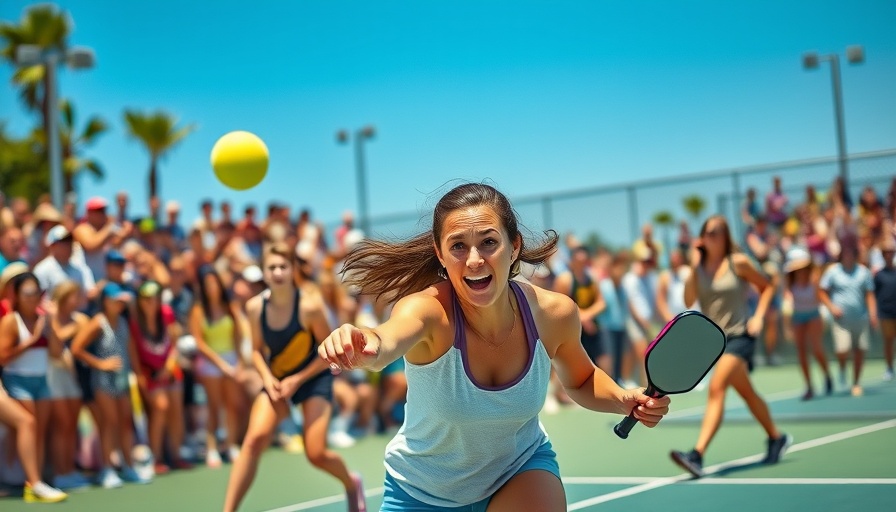
Unlocking the Secrets of a Major Pickleball Victory
In his latest match, professional pickleball player Max Freeman achieved what many consider the pinnacle of his career: a victory over the formidable Ben Johns. This win not only signifies a personal achievement for Freeman, but it also reflects the evolving landscape of competitive pickleball.
The Evolution of Singles Competitions
Freeman's win comes amidst a noted shift in men's singles pickleball, drawing comparisons to the unpredictability of March Madness where higher seeds frequently face early exits. This trend suggests that the dynamics of player matchups are changing, making it crucial for players to adapt their strategies and mental game.
Game Analysis: Staying Consistent Under Pressure
During the match, Freeman displayed a notable strategy: aggressive returns. Despite missing several initial returns, he focused on making Ben Johns’ third shot as challenging as possible to avoid lengthy rallies, showcasing a tactical mindset that can benefit amateur players as well.
Building Confidence in Competitive Scenarios
Freeman attributes his success to consistent mental preparation, having faced significant competitors in the past. His triumphs against players like Jack Sock build a psychological edge, illustrating how previous experiences can enhance performance in high-pressure moments. For those over 50 in pickleball, this serves as an inspiring reminder that confidence and practice are essential for improvement.
The Takeaway: Embracing the Challenge
Max Freeman’s victory over Ben Johns exemplifies resilience and adaptability in pickleball. As the sport continues to evolve, it challenges current players to rethink their approaches and strategies. Embracing the mindset of 'just keep going,' as Freeman did, could be key for amateur players looking to elevate their game.
Whether it’s adapting strategies, building mental fortitude, or simply enjoying the game, there’s always a lesson to learn in pickleball. For players in Southern California, particularly those over the age of 50, finding ways to stay engaged and competitive can lead to more fulfilling experiences on and off the court.
 Add Row
Add Row  Add
Add 




Write A Comment